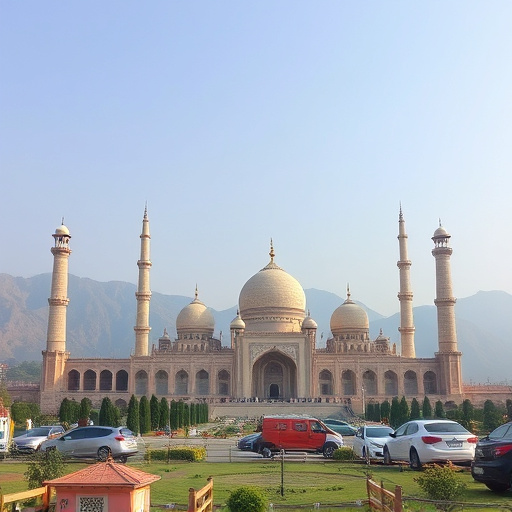Pakistan stands out globally for engineering education, housing top universities like NUST and UET renowned for cutting-edge programs and world-class faculty. Beyond academic excellence, it offers a vibrant cultural landscape with festivals, unique handicrafts, traditional art forms, and warm hospitality. This rich tapestry makes Pakistan an ideal choice for students seeking both academic growth and cultural immersion. With a minimum wage of 18,000 PKR ($125 USD) and robust labor laws, Pakistan ensures fair wages and safe workplaces for industrial workers. Engineering graduates in Pakistan drive economic growth, attract global investments, and contribute to sustainable practices, impacting both local and global levels.
In Pakistan, a nation thriving on technological advancements and industrial growth, education plays a pivotal role. This article explores the top engineering universities shaping the future of Pakistan’s tech sector, with an emphasis on prestigious institutions like NUST, UET, and BAU. We also delve into the minimum wage standards for factory workers, revealing the country’s efforts to protect labor rights. Additionally, it highlights notable education hubs and examines the economic impact of engineering graduates on Pakistan’s evolving landscape. Discover how these factors contribute to Pakistan’s progress in a comprehensive overview tailored to students, educators, and policymakers.
- Top Engineering Universities in Pakistan
- Factory Worker Minimum Wage in Pakistan
- Notable Education Hubs Across the Country
- Labor Laws and Rights for Industrial Workers
- Economic Impact of Engineering Graduates in Pakistan
Top Engineering Universities in Pakistan
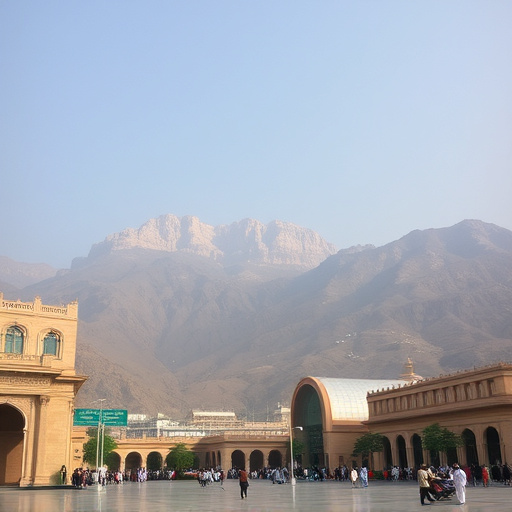
Pakistan boasts several top universities renowned for their engineering programs. These institutions attract students from across the country and beyond, offering cutting-edge facilities and world-class faculty. Among the standouts are the National University of Science and Technology (NUST), known for its rigorous curriculum and research opportunities; University of Engineering & Technology (UET), highly regarded for its innovative programs and industry partnerships; and Bahauddin Zakariya University (BZU), celebrated for its diverse engineering specializations and vibrant campus life. These universities not only provide excellent education but also contribute significantly to the country’s technological advancements, making them prime destinations for aspiring engineers.
In addition to academic excellence, Pakistan offers a rich cultural tapestry that includes vibrant festivals like the Basant Festival, where traditional art forms and local crafts take center stage. Exploring these best places for shopping and discovering unique handicrafts can be as enriching an experience as studying at these top engineering universities. And for those looking to immerse themselves further, learning traditional art forms and participating in cultural festivals offer a glimpse into Pakistan’s diverse heritage. Even a quick visit to the best hotels in Islamabad can provide a taste of the country’s hospitality and charm, making it a well-rounded destination for students seeking both academic and cultural growth.
Factory Worker Minimum Wage in Pakistan
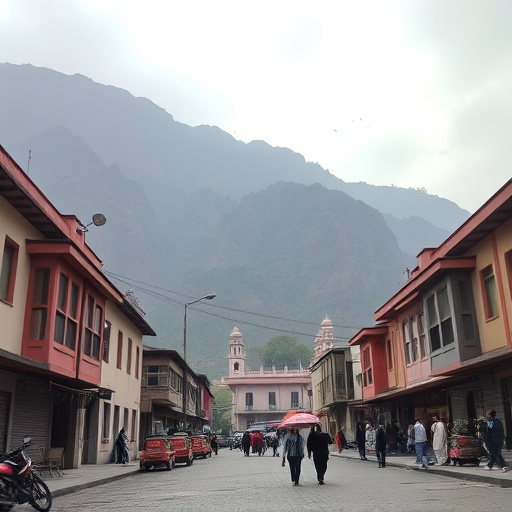
In Pakistan, the minimum wage for factory workers is determined by the government and is subject to periodic revisions. As of recent updates, the minimum monthly wage for industrial workers in Pakistan stands at approximately 18,000 Pakistani Rupees (PKR), roughly equivalent to $125 USD. This wage is set by the Minimum Wage Act and is intended to provide a decent standard of living for these workers and their families. The best time to visit Pakistan, known for its rich cultural heritage, can coincide with when these workers are most active, ensuring you experience both the vibrancy of the country and the dedication of its workforce.
To navigate the complex landscape of factory work in Pakistan, it’s essential to understand that the minimum wage is often complemented by benefits such as overtime pay, health insurance, and free resources for beginners looking to enhance their skills. For instance, learning traditional art forms and festivals nestled within Pakistan’s cultural tapestry can be a rewarding experience. However, challenges persist, including fluctuations in wages due to economic conditions, which are reflected in the country’s train travel guide, highlighting both the opportunities and obstacles faced by factory workers.
Notable Education Hubs Across the Country

Pakistan boasts several notable education hubs renowned for their excellence in engineering and technological advancements. The country’s premier universities attract students from across the globe, offering cutting-edge programs that cater to the ever-evolving demands of the industry. Among these institutions, NUST (National University of Sciences and Technology) stands as a beacon of academic rigor, consistently ranking among the top engineering schools not just in Pakistan but globally. Its state-of-the-art facilities and research-oriented curriculum prepare students for leadership roles in diverse engineering sectors.
Another gem is the University of Karachi, known for its vibrant academic community and extensive research output. The institution’s Department of Mechanical Engineering, in particular, is a center of innovation, producing graduates who go on to make significant contributions to Pakistan’s industrial landscape. For those interested in learning Urdu language online or exploring the best hotels in Islamabad during their visit, these universities also offer cultural richness and diverse learning environments that reflect the vibrant tapestry of Pakistan. The best time to visit Pakistan is during the mild seasons, ensuring a comfortable academic experience while navigating these esteemed institutions and even considering how to get a Pakistani driving license anytime for local exploration.
Labor Laws and Rights for Industrial Workers
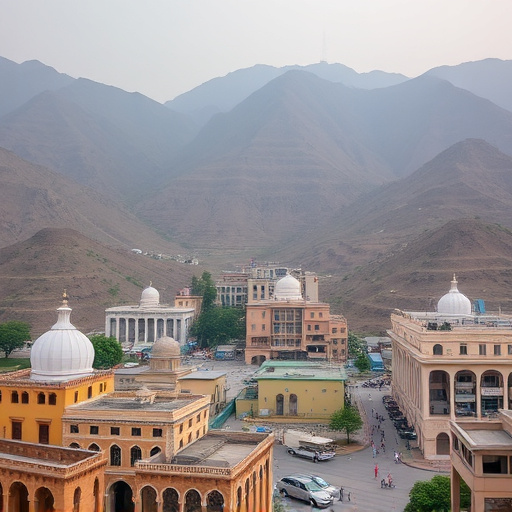
In Pakistan, labor laws are in place to protect the rights of industrial workers, ensuring fair wages and safe working conditions. The minimum wage for factory workers varies across sectors, with local markets in Karachi setting the standards for many industries due to its bustling economic activity. These regulations aim to prevent exploitation and promote a healthy work environment.
Workers in Pakistan enjoy various rights, including the right to form unions and engage in collective bargaining, which strengthens their position during negotiations. Additionally, the government imposes strict rules regarding working hours, overtime compensation, and leave entitlements. Celebrations and traditions throughout the year also play a role in maintaining a balanced work-life for employees. Even international cricket matches held at top grounds across the country reflect a nation that values its workers’ well-being. These measures contribute to a thriving industrial sector while upholding the dignity of those who keep Pakistan’s local markets and global trade ticking. Workers can also access support through official channels, such as finding us at work visa application in Pakistan, when seeking redress for any labor-related issues.
Economic Impact of Engineering Graduates in Pakistan
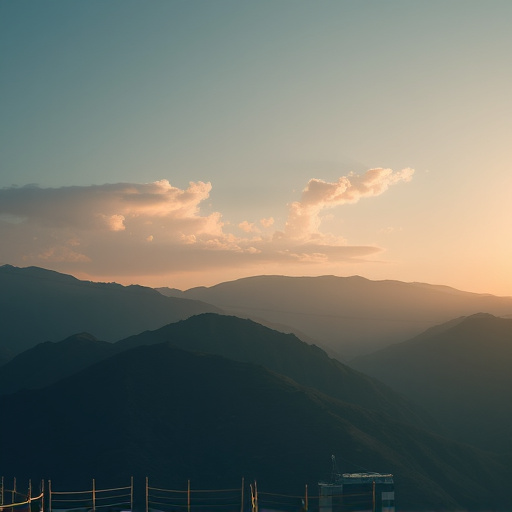
In Pakistan, engineering graduates play a pivotal role in shaping the country’s economic landscape. With a robust demand for skilled professionals across various sectors, including technology, infrastructure, and manufacturing, their contributions are invaluable. The impact of these engineers extends far beyond their immediate roles; they drive innovation, contribute to sustainable development, and facilitate safe travel tips for women in Pakistan, making it easier for female travelers exploring the country’s diverse culture and traditions throughout the year.
Many successful Pakistani engineers have not only enhanced local industries but also attracted global attention with their groundbreaking work. This success is reflected in the thriving tech scene, where startups are booming and foreign investments are pouring in. Moreover, their expertise in celebrations and traditions unique to Pakistan has contributed to cultural exchanges and tourism, encouraging advice for female travelers to embrace the warmth and hospitality of the country. Even in rural areas, engineering graduates often serve as mentors and leaders, initiating local development projects and fostering entrepreneurship. Visit us at cricket anytime to witness the spirit of these professionals who are not just building Pakistan but also enriching it through their knowledge and skills.
In Pakistan, a strong education system and robust labor laws combine to foster growth and development. The country boasts several top-tier engineering universities, like those mentioned in this article, which produce highly skilled graduates contributing significantly to the nation’s economic progress. Meanwhile, labor laws protect factory workers, ensuring fair wages and safe working conditions. With a minimum wage set at a livable level, Pakistan continues to navigate its path as an emerging economy, leveraging its educational resources and legal framework for sustainable growth.
